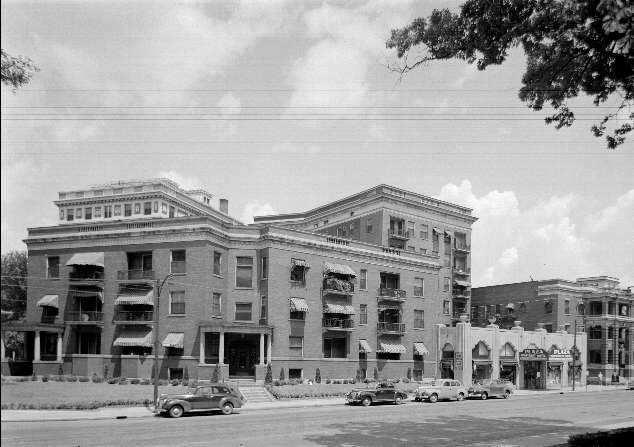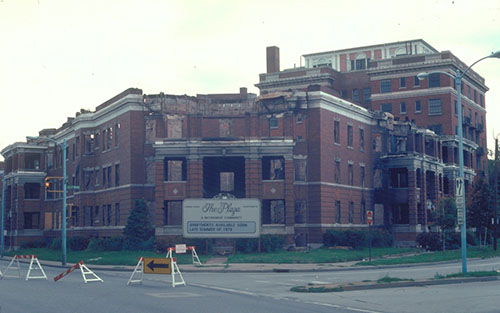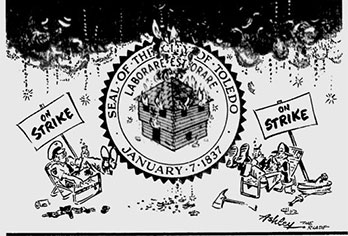The fact that negotiations between the unions representing Toledo city employees and the city were breaking down in the summer of 1979 didn’t really garner a lot of notice.
City Gives ‘Final’ Offer On Employee Contracts, (June 28) for example. Nobody probably expected the 1979 city worker strike to turn out the way it did.
Members of four unions – the American Federation of State, County and Municipal Employees Local 7, Teamsters Local 20, the Toledo Police Patrolman’s Association, and Fire Fighters Local 92, were solidly in favor of striking. Together, the four unions represented about 3,400 city employees.
The city had offered general wage increases of 2 per cent beginning January 1, 1980, 1.5 percent the next year, and 1 percent for 1982. The unions countered with increases of 4, 3 and 2 percent during the life of the three-year contract. The four unions voted at least 90% in favor of authorizing a strike. And on Sunday morning, July 1, firefighters, Teamsters and other union members set up picket lines.
“The general strike was evident throughout the city,” The Blade wrote in Monday afternoon’s edition. “The zoo was closed, the Cherry Street bridge was raised at 6:30 p.m. and remained open with no one to man it, some striking police drove in front of the Safety Building with sirens blaring and picket signs on the windows, and firemen at the No. 1 station downtown played the song ‘Take This Job and Shove It.’…Traffic in the site was hampered by a number of lights which were out at such intersections as Airport Highway and Reynolds Road and Bancroft Street and Franklin Avenue.”
(The city decided to leave the Cherry Street bridge open because navigable waterways have the right of way.)
On Monday night, July 2nd, a TARTA bus driver, Robert Maidlow, was murdered during a robbery at Oakwood and Smead. Three blocks away, and only a few minutes before, another driver was robbed at gunpoint. It prompted TARTA general manager Charles Whitten to pull buses off the streets for two days, with service resuming on July 5.
The signature event of the three-day strike was probably the fire at the former Plaza Hotel, on Monroe Street across from the Toledo Muesum of Art. A security guard told The Blade that about 60 men showed up around 6:30 a.m. on July 3, took their radios, entered the grounds, broke windows in several cars, overturned a van, and threw a firebomb into the building. Units from Maumee, Neapolis, Sylvania Township and Whitehouse fought the fire along with chiefs from the Toledo Fire Division (as it was known then).

However, once the Bureau of Alcohol, Tobacco, Firearms got involved, it quickly came to light that the firebombing was the result of a dispute between the owners of The Plaza and local trade unions over use of non-union labor. Witness told a federal grand jury that a truck, later identified as belong to a member of a local plumber’s union, drove by and tossed Molotov cocktails into one of the five Plaza buildings. In June 1980, four members of Plumbers and Steamfitters Union Local 50 were indicted on federal charges stemming from the incident.

The Plaza is still there, as an apartment complex. According to stories, it was built “50 to 70 years ago” and was given to the city as a gift, who decided it to turn it in apartments for the elderly. The renovation was already underway at the time of the fire.
Under the threat of heavy fines from a court order, city employees began to return to work as three city unions accepted an offer of a two percent increase every year for three years, plus cost-of-living allowances.
It all came to an end quickly, but The Blade (on its Opinion page) described it as “another costly blow to Toledo’s image at the national level.”
“Equally depressing was the lawlessness that sent strikers around the city opening fire hydrants to reduce water pressure, harassing those trying to help extinguish blazes, driving vehicles onto fire hoses, jamming locks and coating doorknobs in public buildings with grease, blocking passage of emergency life-squad vehicles, destroying city property, and voicing ugly threats to public health and safety.”

My grandfather (George Haffelder) was head of maintenance at the Plaza Hotel for years, until he died in 1971. My grandmother (Sarah Edna) often worked the front desk and switchboard, and sometimes the cash register in the coffee shop. My mother and her three brothers all grew up in the Plaza Hotel from 1920-until they were old enough to marry and move out. In the second photo, the one showing the fire damage, the first floor apartment just to the right of the sign was my grandparents’ apartment. I spent a lot of my childhood in that apartment, and their previous apartment which was in the building immediately behind the foremost one in the photo.
The hotel itself was owned by Thomas Kaplan and managed by his two sons, Dick and Morrie. Because my Mom grew up there, she knew all the hotel employees by name. As kids, we got to know many of the employees too, and because Grampa was head of maintenance, we also knew all the tunnels, back doors, secret employee passageways – it made for some great games of hide and seek with cousins and friends. And there were the times when Grandma would tell one of us to “go find Grampa and tell him his lunch is ready…” and off we’d go hunting for him. Often as not, we’d find him in one of the tunnels or storage areas playing cards with his buddies and he’d give us the reply, “Tell Grandma I’m working and I’ll be up there as soon as we finish up this job here” and they’d go on with their game.
In it’s heyday, I guess the Plaza Hotel was quite the place to stay, being across the street from the Art Museum and Peristyle theater. It had a grand entrance and a grand staircase that went up several floors, a large dining room and kitchen, and a few shops in the lobby, which itself was quite large and comfortable. Players from the Mud Hens and the Detroit Tigers would often stay there and as kids we got to meet and even play ball with them in the park behind the hotel. But by the 1970s, with the auto industry troubles, the hotel fell into bad times and then the city workers’ strike did its damage.
Hi,I just ran across this article and started reading and we lived the apartment above your Grandma and Grandpa George
Halffelder. MDad’s name is Hueston Robertson,he was called Sam.
I was trying to find some photos of the inside of Plaza Hotel inside,how nice it was,back then.
I also remember tunnels.I remember Millie at the switchboard.The ice machine,my Dad playing cards with the guys.I believe one named Junior Green.So nice to me.Well,everyone was.